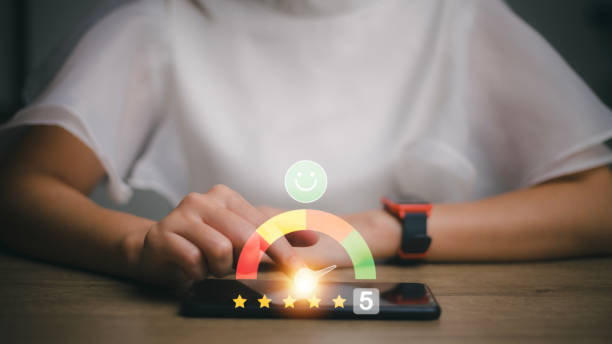In today’s digital world, privacy and consent have become significant issues, especially with the rise of social media and instant messaging platforms. One term that has sparked conversation and controversy is “gotanynudes.” In this article, we will explore the implications of this phrase, its effect on personal privacy, and how users can protect themselves in an increasingly connected world.
Introduction
In recent years, online privacy has become a focal point of discussion, particularly concerning how personal images and information are shared and requested. The term “gotanynudes” is part of this dialogue, highlighting the often unregulated and intrusive nature of online interactions. In this article, we will dive deep into understanding the societal, legal, and emotional consequences tied to the exchange of such private content and the steps individuals can take to protect themselves online.
What Does Gotanynudes Mean?
When someone asks “gotanynudes,” they are requesting explicit or intimate images. This phrase is often used casually across social media and messaging platforms, but it raises serious concerns about privacy, consent, and the security of personal data. Sharing such images without the recipient’s full understanding of the consequences can lead to negative outcomes, such as cyberbullying, blackmail, or the unauthorized distribution of private images.
The Impact of Gotanynudes on Personal Privacy
In an age where sharing photos is as easy as clicking a button, the line between personal and public content can blur. While some may believe sending explicit images is harmless, the reality is that once images are sent, control is often lost. Here are some major concerns related to the spread of personal images:
Loss of Control Over Images
One of the key dangers associated with “gotanynudes” is the loss of control over personal images. Once shared, these images can be copied, forwarded, or even posted online without permission. This can lead to significant privacy violations and long-lasting consequences.
The Risk of Image-Based Abuse
Image-based abuse, often referred to as “revenge porn,” is when intimate images are shared without consent. Those who share images in private may later become victims of blackmail or emotional abuse. This underscores the importance of understanding the risks before engaging in the exchange of sensitive content.
Digital Footprint and Permanent Consequences
When intimate images are shared online, they leave a digital footprint. Even if deleted from one platform, these images can resurface on other sites. Many victims have experienced long-term emotional, professional, and social damage as a result of their images being distributed without consent.
Consent in the Digital Age
Consent is a crucial part of any interaction, especially when it involves sharing personal images. Unfortunately, many people may feel pressured or coerced into sending explicit images, even when they are uncomfortable. It’s important to understand what consent looks like and how to maintain healthy boundaries in online interactions.
Understanding Consent
Consent must be freely given, informed, and specific. If someone feels pressured or obligated to send intimate content, then it is not true consent. Having a conversation about comfort levels and boundaries is important before sharing any personal material.
The Role of Communication
Clear communication is vital when discussing privacy and boundaries. Users should be encouraged to talk openly about what they are comfortable sharing and what they want to keep private. This helps to foster mutual respect in online relationships.
How to Protect Yourself Online
Given the risks associated with sharing intimate content, it’s important to take steps to protect yourself and your privacy online. Here are some tips to help safeguard your personal information:
Think Before Sharing
Always think carefully before sharing personal images online. Consider the potential long-term consequences and remember that once an image is out there, it can be very difficult to take it back.
Use Secure Platforms
If you choose to share personal content, use encrypted platforms that offer secure messaging. However, even with secure platforms, it’s essential to trust the recipient fully before sending any intimate images.
Understand the Legal Consequences
Depending on where you live, distributing explicit images without consent may be illegal. Know your rights and the laws in your region to protect yourself from possible legal consequences related to privacy violations.
The Emotional Impact of Gotanynudes
The emotional toll of having intimate images leaked or shared without consent can be severe. Victims often report feelings of shame, guilt, and betrayal. It’s essential to remember that the responsibility lies with the person who shared the image without consent, not the person who trusted someone with their private content.
How to Seek Help
If you’ve been a victim of image-based abuse, it’s important to seek help from legal authorities or organizations that specialize in online privacy. These groups can provide the support needed to take action and regain control over your digital life.
Conclusion
The phrase “gotanynudes” is more than just a casual online request. It represents a larger conversation about digital privacy, consent, and the consequences of sharing intimate images online. Understanding the risks, knowing your rights, and taking steps to protect your privacy are essential in today’s digital world. As we continue to navigate this evolving landscape, it’s important to prioritize respect, consent, and awareness in all online interactions.
FAQs
What does “gotanynudes” mean?
“Gotanynudes” is a slang phrase used to request intimate or explicit images, typically in online conversations.
Is it illegal to share nudes without consent?
In many jurisdictions, sharing explicit images without consent is illegal and can result in serious legal consequences.
How can I protect my privacy online?
You can protect your privacy by using secure messaging platforms, thinking carefully before sharing personal content, and fully understanding the risks involved.
What is image-based abuse?
Image-based abuse, also known as revenge porn, is when intimate images are shared without the subject’s consent, often leading to emotional and legal consequences.
What should I do if my private images have been shared without my consent?
Seek legal help and report the incident to authorities. There are also organizations that specialize in helping victims of image-based abuse.



